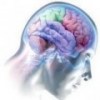A downright amazing post on cognitive dissonance at Mind Hacks.
Gesturing unlocks children's math skills.
An entertaining review of new work on inner speech.
A new case of simultagnosia (the inability to see more than one object at a time).
Repressed memories: a "culture-bound" syndrome?
Tabloid language in Nature Neuroscience?
Frontal Cortex discusses a new book on electroconvulsive therapy (but I disagree this is a contrarian perspective - ECT has always been known to be highly effective).
PsychCentral discusses the collected videos of a guy who's documenting his ongoing electroconvulsive therapy.
Keep an eye out for a new peer-reviewed review paper on brain entrainment technologies. Via Mindupdate.
Looking down skews distance perception.
Orexin A - another new drug which seems to provide the cognitive advantages of amphetamines without their disadvantages, as demonstrated in this article in terms of a delayed match to sample task.
Cultural Change in Play: "Precocious play" is a frequently observed form of play among nonhuman animals. Maybe the same instinct is generating the current shift in toy preferences towards tech devices?
I love puzzles, and this one sounds great.
Not psychology related, but nearly as cool: Reverse graffiti
Mousetrap reviews Gopnik's answer to Edge 2008, arguing that pretend play may have a purpose after all.
Psychologists With Changed Minds: Edge Answers from Terry Sejnowski (arguing for neurons as highly complex and reliable computers, rather than noisy feature detectors as previously believed), Stanislas Dehaene (who now believes in a single overarching computational principle of the brain), Daniel Dennet, Marco Iacoboni, Steven Pinker, Joseph Ledoux, Martin Seligman, Geoff Miller, Howard Gardner, Gary Marcus (this one is particularly interesting), Stephen Kosslyn, Sherry Turkle, Dan Gilbert, Jon Haidt, Phillip Campbell, David Buss, Nicholas Humphrey, Susan Blackmore (wow), Simon Baron Cohen.
Blogroll additions:
Neurowatch
Verve Project

I found some Orexin-A for sale online. If i'm reading that right, it's only $350 for .5 mg and has to be kept at -4 degrees F.
Ye gods man, are you trying to start a new carnival all by yourself? ;-)
@David: I've been told many times to separate these into smaller lists, which I really should do. I hadn't done so originally b/c of a lack of tagging at blogspot (and I didn't want link posts intermingled with post on peer-reviewed stuff).
@Brian: wow. who is a good piracetam supplier?